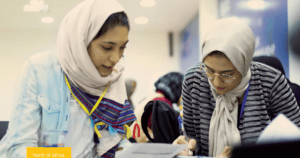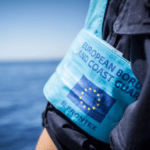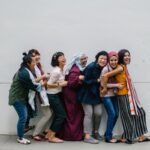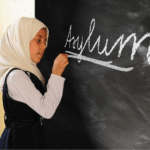Upon arrival and in the very early stages of the integration process, migrants often encounter difficulties in their social orientation, as well as in dealing with authorities, public and private services or handling paperwork. These difficulties can slow down the integration process and affect its outcome.
Objectives
- Develop activities involving local communities, including mentoring and/or volunteering, to facilitate the social orientation and active participation of migrants;
- Support the social orientation of both migrant women and men, including through provision of information about all the aspects of daily life;
- Strengthen the sense of belonging to the new society and foster an active role in the community at local, regional, national and/or EU level;
- Promote meaningful interactions between the local population and newly arrived migrants;
- Facilitate the transfer of experience, knowledge and practices between the partners of the project to develop more effective actions;
- Facilitate the dissemination of experience, knowledge and practices beyond the partners of the project to develop more effective actions, including by evaluating the impact of the actions developed.
The projects and activities need to take into account the specific situation of groups of special concern, such as children, parents with children, women, the elderly, illiterate or semi-literate persons, refugees, people arriving in the context of family migration, or victims of violence who need specific information tailored to their needs.
Expected Results
- Improve the social orientation of both women and men newly arrived involved in the projects and/or show and evaluate how the support provided through the project contributed to this objective;
- Strengthen the sense of belonging to the new society and support their active role in the community at local, regional, national and/or EU level and/or show and evaluate how the national/transnational actions contributed in this regard;
- Promote exchanges and interactions between the receiving society and newly arrived migrants facilitating the integration of newcomers;
- Improve transnational cooperation to facilitate the transfer of experience, knowledge and practices (good and bad) related to the social orientation of third-country nationals within the partners of the project, and achieve more effective practices and initiatives;
- Facilitate the dissemination of experience, knowledge and practices beyond the partners of the project;
- Improve knowledge on how to support the social orientation of both women and men newly arrived;
- Improve knowledge on whether and how the facilitation of interactions between the native population and migrants is associated with more positive attitudes towards migrants and improved social integration
Further considerations applicable to this topic
Applicants should consider and clearly detail in their application how the different domains and relevant actors are to be involved. To attain the objectives of this call, it is necessary to:
- cover all relevant aspects of daily life across areas such as transport, administrative issues, education, training, counselling, leisure, social networks, well-being and mental health, and
- collaborate with all relevant actors (through a “multi-stakeholder approach”), i.e. by developing activities with and engaging various actors, for example: local authorities and communities, private and public stakeholders, educational institutions, non-formal education actors, migrant organisations (including self-led organisations), experienced migrants already living in the host country, social workers, health professionals and above all: migrant women and men and natives who will participate to the project activities.
Furthermore, applicants should also give specific attention to people in a potentially vulnerable situation, including victims of gender-based violence, or who belong to a religious or ethnic minority who could face discrimination or disproportionate obstacles.
The Commission would welcome large or small projects in terms of budget and number of partners
Deadline
30 January 2020 at 17:00 Brussels time







Leave a Reply